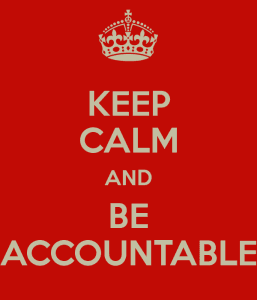In the December 8, 2015 Ask The Headhunter Newsletter, a reader gets down on reference checking.
Question
I’ve come to the conclusion that asking for references is about the dumbest thing a company can do in the hiring process. First, I believe that any prior employer is only obligated to give the dates you worked and at what salary. They don’t like to give any qualitative assessment because there are potential liability issues involved. Second, who is going to give a personal reference that would not describe you in laudatory terms? I think references are just another personnel department make-work project! What do you think?
 Nick’s Reply
Nick’s Reply
One of the very best ways to size up a job candidate is to consider the opinions of her professional community. Employers who ignore peer review take unnecessary risks when hiring. But that’s where today’s reference-checking practices have led us.
Incompetent reference checking
Asking for references seems dumb because it has been made trivial; so trivial that companies routinely outsource reference checks rather than do it themselves. (See Automated Reference Checks: You should be very worried.) They’re going to judge you based on a routine set of questions that someone else asks a bunch of people on a list. How ludicrous is that?
Employers have bought into the idea that a reference check is like a credit check, but it’s not. A credit check digs up objective information: numbers, loan payment dates, defaults.
A reference check is largely subjective. The source of information isn’t a bricks-and-mortar bank that’s required to divulge facts about your accounts. A reference source is a mushy human being who may be in a good mood or a bad mood; who may know you well, or not. The reference checker must know the context — the industry, the profession, the work, the community — or he can’t possibly understand what to ask or what the comments really mean. This is why most reference checks are simply incompetent, if not dangerous.
 The “reference and investigations” industry may be able to turn up criminal records and such, but you can’t tell me that a researcher is going to elicit a subtle judgment of a job candidate by calling a name on a list. Worse, if the information that’s collected is erroneous, why would such a reference checker care? He’s not accountable to anyone. The employer that buys it doesn’t care and isn’t going to ask you to explain. To borrow a phrase, outsourcing reference checks is like washing your hands with rubber gloves on. If you’re going to feel anything, you must get your hands dirty!
The “reference and investigations” industry may be able to turn up criminal records and such, but you can’t tell me that a researcher is going to elicit a subtle judgment of a job candidate by calling a name on a list. Worse, if the information that’s collected is erroneous, why would such a reference checker care? He’s not accountable to anyone. The employer that buys it doesn’t care and isn’t going to ask you to explain. To borrow a phrase, outsourcing reference checks is like washing your hands with rubber gloves on. If you’re going to feel anything, you must get your hands dirty!
Real reference checking
There is no finesse in reference checking any more — not for most employers. A real reference check is done quietly and responsibly, by talking to sources that a manager tracks down on her own by using her network of professional contacts. These are candid references; comments made off the record within a trusted professional relationship. That’s where you’ll find the true measure of a candidate.
Did I just break five laws? That’s only because the skeevy industry that has grown around reference investigations requires regulation. It’s because employers are no longer good at teasing apart credible references from spiteful or sugar-coated ones. They want to put the legal liability for making judgments of character and reputation on someone else.
There’s a better way to do it, and it’s time-honored among honorable businesspeople. The person doing the reference checking must be savvy and responsible. She must know what she’s doing. A greenhorn human resources clerk is out. In fact, the only person who should be doing such a check is the hiring manager. The most candid discussions will take place between managers who know their industry, their professional community, and the issues in their business. Where a manager might not open up to an “investigator,” she’s likely to share information with a peer. Credible, useful information comes from credible, trustworthy sources. You can’t buy it.
If it’s true that hiring the best people matters, then real reference checks give an employer a very powerful competitive edge. Outsource reference checks, or do them ineptly, and you’ve bungled your company’s future.
Reference checking is a community event
The reason — other than legal — that companies don’t do effective checks is that human resources (HR) departments simply don’t have the kinds of contacts in the professional community that could yield legitimate, credible references. And that brings into question HR’s entire role in the recruitment, selection and hiring process. If you don’t have good enough connections in the professional community to do that kind of reference check, how could you possibly recruit from that community? Both tasks require the exact same kind of contacts and relationships. It’s all about the employer’s network.
 Job hunters correctly worry that bad references might cost them a job. That’s a real problem. The question is, is the bad reference justified? If it is, then perhaps it should cost you a job. Don’t shoot the messenger. Take a good look at yourself, and recognize that the truth has consequences in your social and professional community. (But all is not lost. See How can you fight bad references?)
Job hunters correctly worry that bad references might cost them a job. That’s a real problem. The question is, is the bad reference justified? If it is, then perhaps it should cost you a job. Don’t shoot the messenger. Take a good look at yourself, and recognize that the truth has consequences in your social and professional community. (But all is not lost. See How can you fight bad references?)
It should not be illegal to rely on credible opinions about you. By the same token, managers must be attuned to vengeful references, and take appropriate measures to verify them. But regulating candor is no solution. When we count on the law to protect us from all information, we must expect to get hurt by a lack of good information.
If I were to check your references, I’d get good, solid information about you. And I might not ever call anyone on the list you gave me. I’ll use my contacts to triangulate on your reputation. (You might be surprised at who I talk to. See The Ministry of Reference Checks.) Will someone try to torpedo you? Possibly, but it’s quite rare. More likely, I’ll turn something up that makes me want to get to know you better; to assess you more carefully.
The trouble is, good reference checks are rarely done. Hence, most reference information is pure garbage, as you suggest. And this hurts good workers just as it hurts good employers. In the end, all we have to go on is the opinion of our professional community. Stifle it, and the community suffers the consequences.
References are your competitive edge
References are such an important tool to help you land a job that I can’t emphasize enough that you must plan, prepare and use references to give you an edge. In Fearless Job Hunting, Book 3: Get In The Door (way ahead of your competition) I discuss just how strategic references are.
First, learn how to launch a reference:
“The best… reference is when a reputable person in your field refers you to an employer. In other words, the referrer ‘sends you’… to his peer and suggests she hire you.” (pp. 23-24)
Second, use preemptive references:
A “preemptive reference is one who, when the employer is ready to talk to references, calls the employer before being called. Such a call packs a powerful punch. It tells the employer that the reference isn’t just positive, it’s enthusiastic.” (p. 24)
The truth matters. Legislating against the opinions of others about us is, well, stupid. Far better to manage those opinions and to be responsible about them. If you’re a manager, it’s also far better to take responsibility and check applicants’ references yourself. Don’t let HR do it. What do references really mean?
: :

